A moment for reflection
5 December 2010, Adelaide West Uniting Church, two women, three men, all under 40 years of age, were ordained by the church as Ministers of the Word.
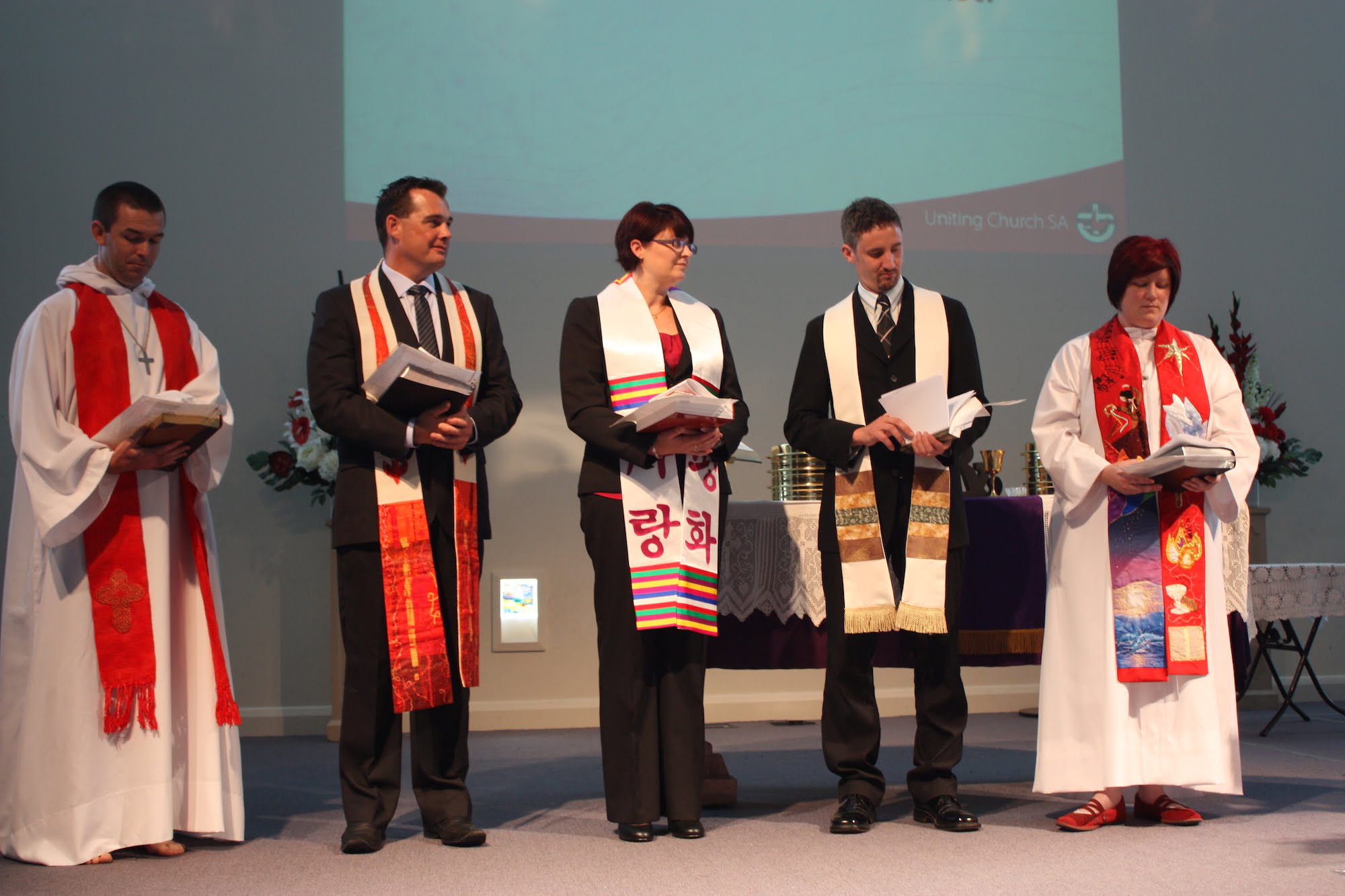
Matthew, Andrew, Naomi, Benji, and I had travelled the years of formation for ordination together at Uniting College for Leadership and Theology, through a period of intense change in the approach our Synod took to formation for ordination for its candidates to the Ministries of Word and Deacon. The five of us had come from diverse backgrounds, were parents and not, single and not, dotted across theological and ideological spectrums at various points. We had shared our vulnerability as the formation process prodded and provoked us, challenged and changed us, affirmed and equipped us, for the varying ministries we would each engage in over the coming decades.
And here we are, the first decade complete.
I, for one, am feeling quite reflective, considering ten years of continued learning and growing, woven with the thread of the emerging and naming of my sense of vocation as storyteller-poet-minister, which came after ordination, however significant that may be. I had been wondering how I would shape some writing of these reflections, and perhaps that will be it. Where, in three very different contexts, I have expressed that identity and vocation, living out the church’s call and hope for me as one of the clerical order.
We begin at home, the Adelaide Hills, five minutes down the road from the congregation which sent me out as a candidate in 2007, having been my faith community for roughly 10 years, and 10 minutes out of the valley in which I grew up.
Beginning
Belair Uniting Church conjures the image of a village church for me, most of its members drawn from within a 5km radius, and the suburb itself, bounded on three sides by open hills and a National Park, set on the brow of the Adelaide Hills, very much like a village.
I was the first for a long time to be called to this congregation alone, the previous ministers for decades having served part time here and part time at my previous home church, Blackwood. We enjoyed both the shared history of relationship with Blackwood, the ‘big sister’ down the road, and this setting out on our own. As I was continuing to form my identity as an ordained person, the congregation was reimagining its identity as an independent community of faith stepping out of the shadow of its larger neighbour.
Because they’d had part time ministers for so long, this congregation’s lay leaders already had confidence to exercise leadership in worship, care, and administration, and I found this group of leaders wise and generous teachers in the rhythms of congregational life and ministry. With several retired and otherwise employed clergy among us, I had colleagues in the order to mentor and support me in their different ways. One of my deepest privileges through those three and a half years was to travel with one of those retired ministers on his final journey through the cancer that would end his life. On one of the Sundays on which I took communion from our gathering to his bed in the front room of his and Margaret’s home, and after I had told him something of the proclamation of the Word and the prayers and people, Tony looked at me and said, ‘feed me’. This was, if my memory is accurate, the last time I saw him, and it remains one of the most profound moments of my time in ordained ministry so far.
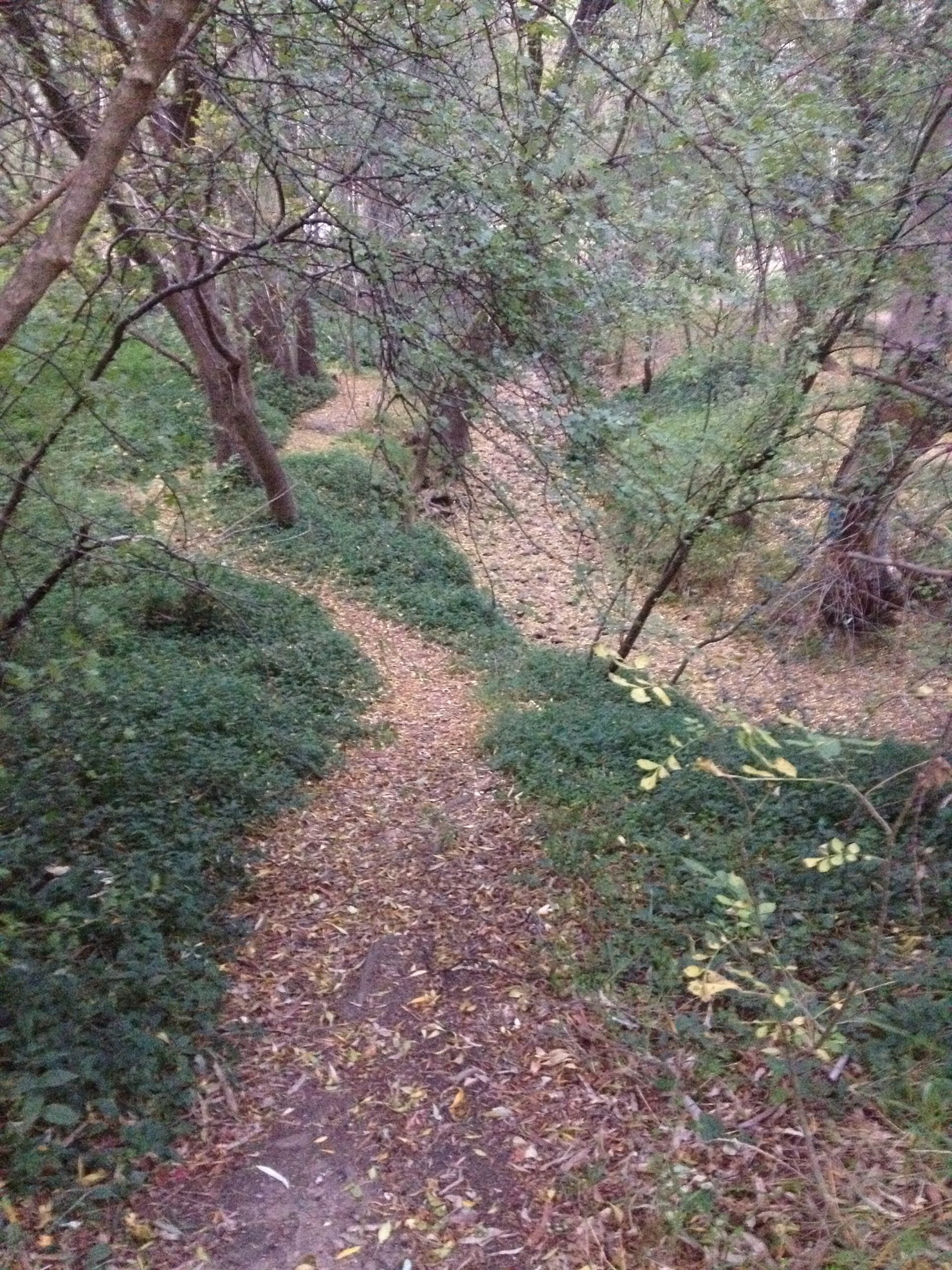
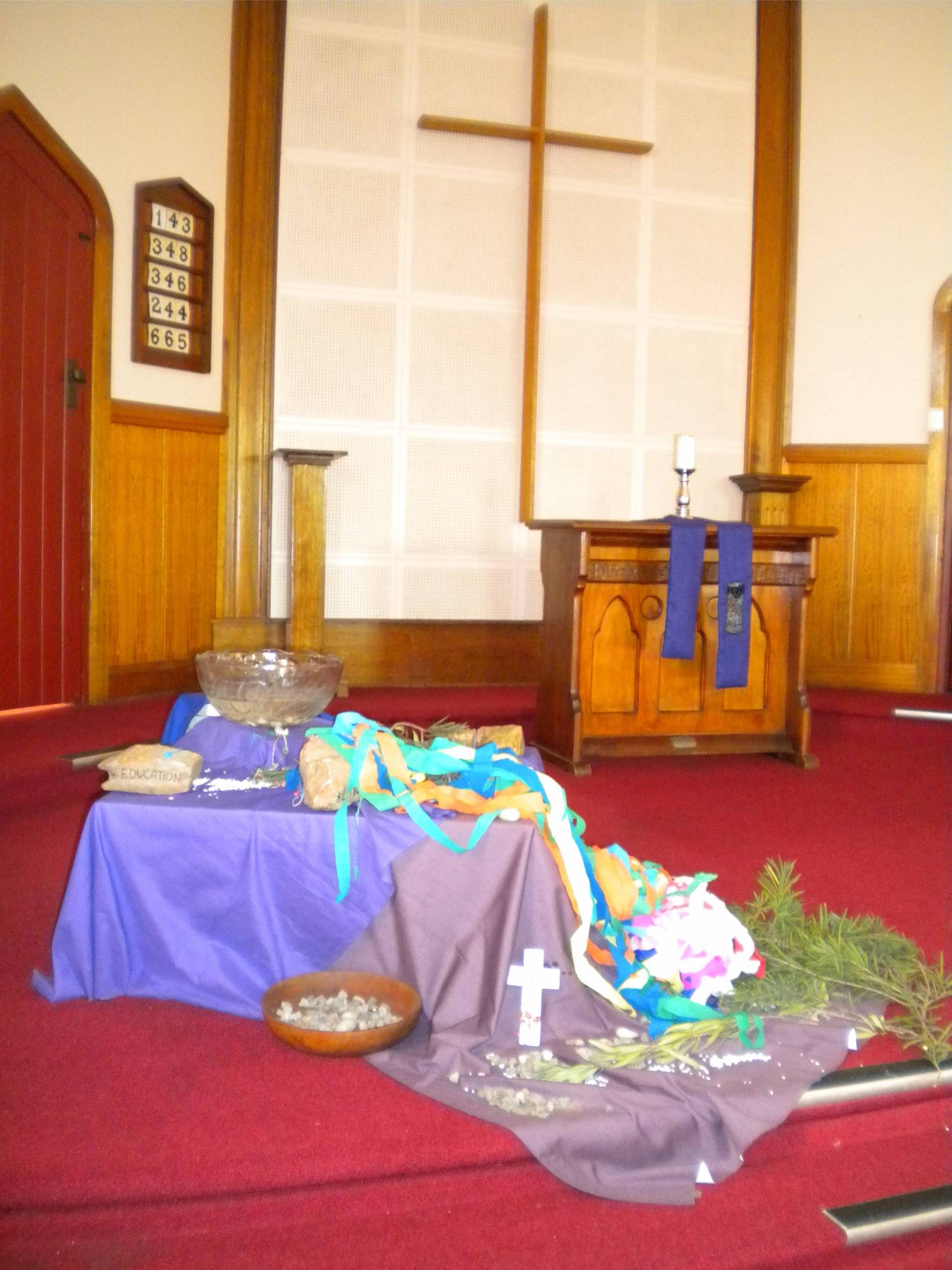
Prayer for a friend who is dying
(or perhaps a prayer for me as a friend is dying)
God who knows us more intimately
than we know ourselves,
my friend is approaching the transition
from this life
to what comes next,
from known
to unknown.Be for him a source of comfort
and courage; be for him
the peace he seeks:peace that he has lived into
the fulness of his being
with love and honour for you,
and others, and himself;peace with his mistakes,
the mistakes of others – peace
that he has forgiven and been forgiven;a peace that even as I pray
I do not understand for what I
am asking –but we trust
we trust you
in this moment of need, we
trust that you are here
you are hereyou are here
you are.
© Sarah Agnew – for Tony
On Wisdom’s Wings, Ginninderra Press 2013.
It was during my years at Belair that I was able to name my sense of identity and vocation as storyteller-poet-minister. Significant steps towards this happened away from Belair, as I participated in, for example, a Christian artists’ retreat run by Image journal, in the hills of Santa Fe, New Mexico. Here, I reconnected with my poet self in the workshops, and in one particular conversation in the dining hall, revised my understanding of myself as a pioneer leader not so much in the establishing of new forms of church, but in the shaping of an alternate approach to leading, to being a minister, as a teller of stories, holder of spaces, more itinerant and more within the established church and moving us gently towards, than necessarily situated myself on, its edges.
I attended my first Network of Biblical Storytellers International Festival Gathering in Asheville, North Carolina; took myself on a ‘storytelling tour’ to Western Australia; helped plan and lead worship at the Uniting Church’s National Assembly (Adelaide) and National Youth Convention (The Gold Coast), told stories and talked about their importance at TEDxAdelaide and an international conference on narrative in Prague.
I published my first collection of poetry, had liturgy published in the international worship resource Seasons of the Spirit, provided prayers for Uniting World’s Lent Event resources, poems for Proost’s anthology Learning to Love, and that narrative conference paper became a chapter in a book. I began six years of teaching as Adjunct Faculty at Uniting College for Leadership and Theology / Adelaide College of Divinity, mentored younger adults in the church, was a member of the planning team for the Centre for Music, Liturgy and the Arts, and had a wonderful six months or so of playing with the drama group, Subtle Bricks.
Each of the elements of the identity and vocation had room to grow during the Belair years. During this time, I also began to integrate the eclectic nature of my being into a whole, as I played with the dynamic fluidity of storyteller, poet, and minister each taking their turn to lead.
A fourth element, one that has been part of my storytelling, poetry, and ministry, the scholar, also developed in new ways through these years, and not only with the teaching. While Minister at Belair, I laid the foundation for the significant scholarly endeavour that shaped the next three years of my life and ministry with an Honours thesis exploring the narrative and performance questions arising from Esther 4, and the nature of Esther’s relationship with Mordecai as one of mutuality.
The Scottish Sojourn
From Belair, I travelled to the other side of the world to take a position as candidate for a PhD in New Testament Language, Literature, and Theology at The University of Edinburgh. This is still the biggest leap of faith I have ever taken, leaving Australia with only six months of funding secured, apart from two thirds of the tuition covered by the School of Divinity for the duration. It was as costly on my being as you can imagine, with the constant uncertainty surrounding my financial capacity to complete the degree – and of course, there is lots of self-doubt along the way with regard to one’s academic, intellectual, personal capacity to meet your goal as well.
So the next three years of the first decade of ordained ministry were, shall we say, tough? And you can expand on that in whatever language you feel appropriate.
But these were also three profoundly rich years of growth, learning, creativity, and continued formation and expression of my storyteller-poet-minister identity and vocation. My poetry and storytelling in particular sharpened in my technique and application of it. The storytelling, obviously, because I was examining this practice for the thesis, in order to develop from my practice an embodied, performance, method of interpreting the Bible. Under my constant scrutiny in order to understand it, and much more regular practice with the time and attention set aside in this season specifically for storytelling, my storytelling of both biblical and original stories became more polished, more effective in communicating with and moving audiences. I was also in the audience for storytellers from many cultures at The Scottish Storytelling Centre, particularly their annual Global Storytelling Festival, but throughout the year with events in the Netherbow Theatre and Storytelling Cafe. I find it difficult to articulate what I learnt through absorption in their presence.
And the poetry, too: I published one book of poetry during these years, and compiled the content for another published in the year after I left Scotland. I published the audio album of Blue, Koala?, and commissioned the illustrations for the printed book, for which I secured a publisher, while in Scotland. I published another digital album of spoken word pieces, In His House, and had three Lent / Easter e-liturgies published with Wild Goose Publications and a set of Christmas resources included with the digital offerings from Proost. With my fellow poet, Lou, and often her husband Tim and other friends, I frequented spoken word evenings, most often at The Blind Poet, a pub two blocks over from my studio in the University part of town. Thus immersed in poetry, my own poetry, as with my storytelling, developed more polish and potency.
During a three day workshop for post-grad students to broaden our understanding of the strengths we take from the post-graduate study experience (beyond the expertise in our particular field), came a spark that has blossomed into one of my most rewarding endeavours. We were considering our ‘brand’, and how we would market ourselves to future potential employers. What makes us unique, the facilitators challenged us. What makes me unique? I pondered for some time following the event. The storyteller-poet-minister thing. So what is it that I, uniquely to whatever extent, can offer?
The story that most shapes my being and that of my community is the biblical story. I write poetry. I lead communities in prayer, liturgy, worship. What if I composed poetic prayers in response to the biblical story, for people to use in their personal and community prayer lives?
Pray the Story was born.
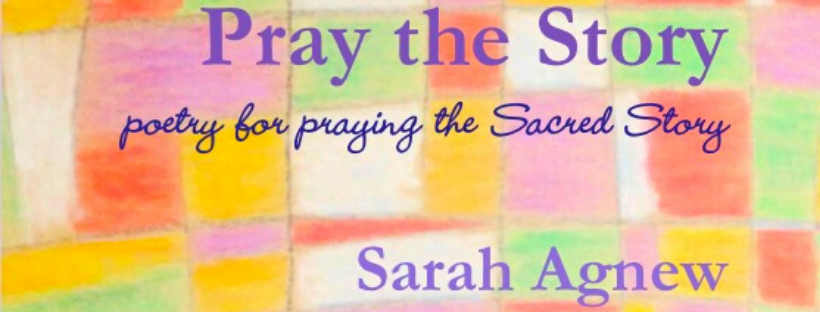
Each week I would post a prayer-poem online that responded to one of the four portions of the Bible set for communities to hear and engage with for the following Sunday.
As I was also seeking offerings for patrons who were supporting my work, this gave me something tangible for them, too. Patrons would receive a full month of prayer-poems in advance, plus an exclusive bonus I wouldn’t publish online. Much more useful benefit for their financial support than a monthly newsletter.
I’ve been going almost five years with Pray the Story, and the first three years of prayer poems, with bonus material, have now been collected into a book. Pray the Story prayer-poems are prayed in congregations of varying denominations, in multiple countries around the world. It’s difficult to know really what the reach of these prayers is, as I rarely hear what prayers are being prayed when and where, or by how many in each place. What I do hear occasionally, is how a particular prayer-poem has met a particular person, moved them or helped them or their community to pray or engage with the Story. More than the numbers, it’s knowing my words help people pray that gives me joy in this expression of my vocation.
I haven’t told you about the congregations I worshipped with in Edinburgh – The Gathering, a fresh expression attached to Edinburgh City Methodist Church; St Augustine United Reformed Church; or my home church at Greyfriars (Church of Scotland). I haven’t mentioned the ones I visited as itinerant preacher, liturgist, storyteller (in the Upper Clyde, Falkirk, Stirling, Glasgow); or about how the first time I led worship in Edinburgh, for the School of Divinity weekly communion service, and putting on my alb and stole, I remembered who I was after months of discombobulation following my move across the world.
I haven’t told you of the workshops in personal storytelling for members of a mental health drop in, in alternative worship, or in storytelling for academic contexts. Nor have I mentioned the conference papers and articles I wrote during this time.
I haven’t even told you about the thesis, really, but for that, there is a book.
But I had better tell you of the Network of Biblical Storytellers International, and the Scholars’ Seminar.
My tribe
Going for a walk in the bush outside Sydney, with folk from the Network of Biblical Storytellers Australia, I was encouraged both to claim my craft as ‘storytelling’, and to, as a storyteller, put myself forward as a candidate for Minister of the Word. We need more artists as ministers, they said.
Thirteen years later, I was the keynote speaker for the Network of Biblical Storytellers’ International Festival Gathering. A lot happened in between.
I found my tribe with the Network of Biblical Storytellers. People who are passionate about the Sacred Story, and the Sacred One revealed through that Story. People full of curiosity and wonder. People of artistry and creativity.
I found my tribe especially with the Scholars’ Seminar. This gathering together of storytellers and scholars and some who are both. I pretty much invited myself along, in 2015, once I’d started my PhD. I heard about the seminar probably from Carole, a storyteller who led our Australian chapter in various capacities for a number of years, and certainly from Richard. This embodiment of curiosity and wonder, artistry and scholarship who would become supporter and encourager, examiner, colleague, friend, sat down with me in the dining hall in Asheville, in 2011, and listened to my dreaming, my wondering, my searching for questions I suspected I wanted to ask of storytelling, of Biblical Performance Criticism before I knew what Biblical Performance Criticism was. Richard was generous, encouraging, from that first meeting, and it was possibly something he said or more, the way he said it or even the way he listened to me, that made me want to join them, the scholars, in their seminar.
So I got in touch with Phil when I started the PhD and asked, can I be part of the gang? Yes. I did a lot of listening in 2015, watching how the seminar worked as a bunch of people who knew how to collaborate, to offer their gifts in story, performance, scholarship, and how to welcome and celebrate those gifts in each other. I talked with as many of them as I could between sessions, to hear their feedback on the direction my work was taking, those who had gone before me, whose work would provide the steps towards the new direction I would take. More generosity, and so much interest and enthusiasm, Tom, the founder of the Network, one of the most effusive of them all. Richard again, Joanna, and Phil. That they believed in the work I was doing would be the fuel for my fire when I was almost burnt out.
The next year, I presented something of my work in the seminar, in workshops during the main gathering, and people again appreciated the suggestions I was making, the insights I was offering, encouragement that I welcomed on that hard, long, road. People from the seminar and the network posed questions, told stories of the ways in which their stories met mine, and it all helped me to form my ideas, to clarify the questions.
And that’s without even mentioning the very great gift the friendships within the seminar and the network are. Friendships of mutual care and encouragement, like those Paul urges for members of faithful communities, as I learnt in embodying and performing his letter to Rome for my thesis. What I value most, I think, is having this tribe with whom to embody the story of Holy One, to wrestle with the difficult passages honestly, to be changed and agents of change through that embodiment.
The Network of Biblical Storytellers is a golden thread woven through each chapter of my ordination so far, including the prelude. I love them, and am grateful for them beyond expression.
Interlude
The finishing stages of a PhD are strung out over months. You hand in the thesis, as completed as you can make it (it’s never perfect, just done), and then you wait. With your supervisor, you will have identified examiners, one from your university and one from outside it. I was surprised at the level of input we were able to have, which wasn’t the case from my memory of PhD students my Dad supported from his office of overseas graduate studies and scholarships for most of my childhood in Australia. Not that I was complaining, mind. So Tim and Richard would be reading my thesis, watching the videos, and preparing their questions for the VIVA, or oral defence. Again, not something with which I was familiar from the Australian process. And they had a couple of months to do that.
During those months, I moved out of the studio I’d inhabited for three years, and into a friend’s flat I’d look after for much of the time she would be visiting a divinity school in Germany for her studies. I wrote some more liturgy for Seasons of the Spirit, and I watched a lot of Netflix.
I also received a message from a friend from Adelaide days 20 years earlier, with whom I’d kept in touch over the years. So, you’ve finished your PhD; are you looking for something to do next? Why, yes, I am; do you have something in mind? Our congregation is looking for a second minister: are you interested?
I looked up the website for Canberra Central Uniting Church Parish (we’re now known as Wesley Uniting Church, Forrest), as it was, and saw that this was an inclusive community, with a high value placed on its gathered worship and scholarly preaching, and a deep commitment to music, both in worship and as a key part of its relationship with the wider community.
Following a conversation with Fiona, a minister at one of my Edinburgh congregations, I had adjusted my thinking about what next step I might take following the PhD. We had talked about how important it might be for me, in the next season of my living, to be embedded with a community, experience some security after these turbulent years, and share whatever gifts of story, scholarship, creativity might emerge, from that embeddedness in a particular place.
So it happened that one week in October 2017 I had a promising conversation with the nominating committee in Canberra about how we might work together, and successfully defended my thesis in Edinburgh. Some celebratory events with friends, colleagues, and supervisors later, I was on the plane back to Adelaide, most likely for seven or eight weeks before leaving home again.
Returns
So my return to Australia was not quite a return ‘home’, but to another new city.
It began well enough, with a collegial collaboration that clicked from the very first moment. Two people secure enough in their own self and calling to welcome and celebrate the gifts of their ministry colleague, a rare and treasured gift. We worked as a team, and we worked with trust, humour, and mutual respect and care for two good years.
I was all the more grateful for this collegial relationship when it became obvious that the PhD years had indeed taken a heavy toll on my health. There’s a natural ‘down’ after a significant achievement like completing a PhD, and I experienced that. I grieved for Edinburgh, the city, my friends, and my way of life there, even as I was attempting to build a new life in Canberra. And the chronic fatigue that was near to diagnosis in Edinburgh worsened again after a bout of glandular fever and post viral fatigue. My first three years in Canberra have been years of pain, exhaustion, disappointment after disappointment as I withdrew with ever diminishing capacity for participating in community, creativity, life.
When it came to a head this year, with another stint of sudden leave because I was thoroughly incapacitated by not only the fatigue but also, this time, the depression, the effort to recover resilience, capacity, wholeness, reached a new urgency.
I write about that elsewhere, in the diary of a chronically exhausted vicar. But now, that diary may be coming to its close, as I return at last to that longed for capacity and wholeness, and shift my perspective from ‘living with chronic fatigue’, to living a rhythm of wellbeing.
As my congregation and I look ahead to 2021, we are both embarking on a new era. We will have a second minister join our congregation in January, as a congregation we are reviewing our processes, and will broaden our discernment to encompass our sense of self, our story, and where we will participate in the movement of God in our city. I will again be part of a team of two holding the ministerial responsibility for this large and complex congregation; and sharing the load will I hope free me up to explore some emerging possibilities within and beyond the congregation.
But my past three years have thankfully included more than ill health. I have, albeit briefly, connected with Australian-based Biblical Performance scholars, and with colleagues in a vital and engaged presbytery here in the Canberra Region. I have engaged in mentoring, and I was co-opted onto the Board of Uniting Mission and Education for a time. Blue, Koala? the illustrated book, Hold Them Close, Pray the Story, and Embodied Performance have all been published in the past three years. In fact, Pray the Story has grown to include new words for hymns, and features in the online and in person materials for Rise Retreats, which I have joined as a team member in recent months. I have spoken at events for different groups in my church, the Canberra Jung Society, and the Mission Shaped Ministry course. And I launched this new website, in a move away from ‘Sarah tells stories’ and into a different expression of the storyteller-poet-minister vocation.
I suspect mentoring is something I’ll do more of in what feels like a reboot of my Canberra ministry season. It feels as though I have the capacity again to perform, and I’m looking forward to a return to storytelling after something of a hiatus. Collaborations will be key to whatever endeavours I embrace, as I draw a tighter focus on what my capacity is, and consolidate a rhythm of living that sustains a gentle but strong energy of health and wellbeing.
The eleventh year of ordained ministry will contain more reflection on the first ten, and the years before, as I write through my experiences of leading and of becoming more healthy and whole. Perhaps you might even get to read those reflections, if they become the next book I publish.

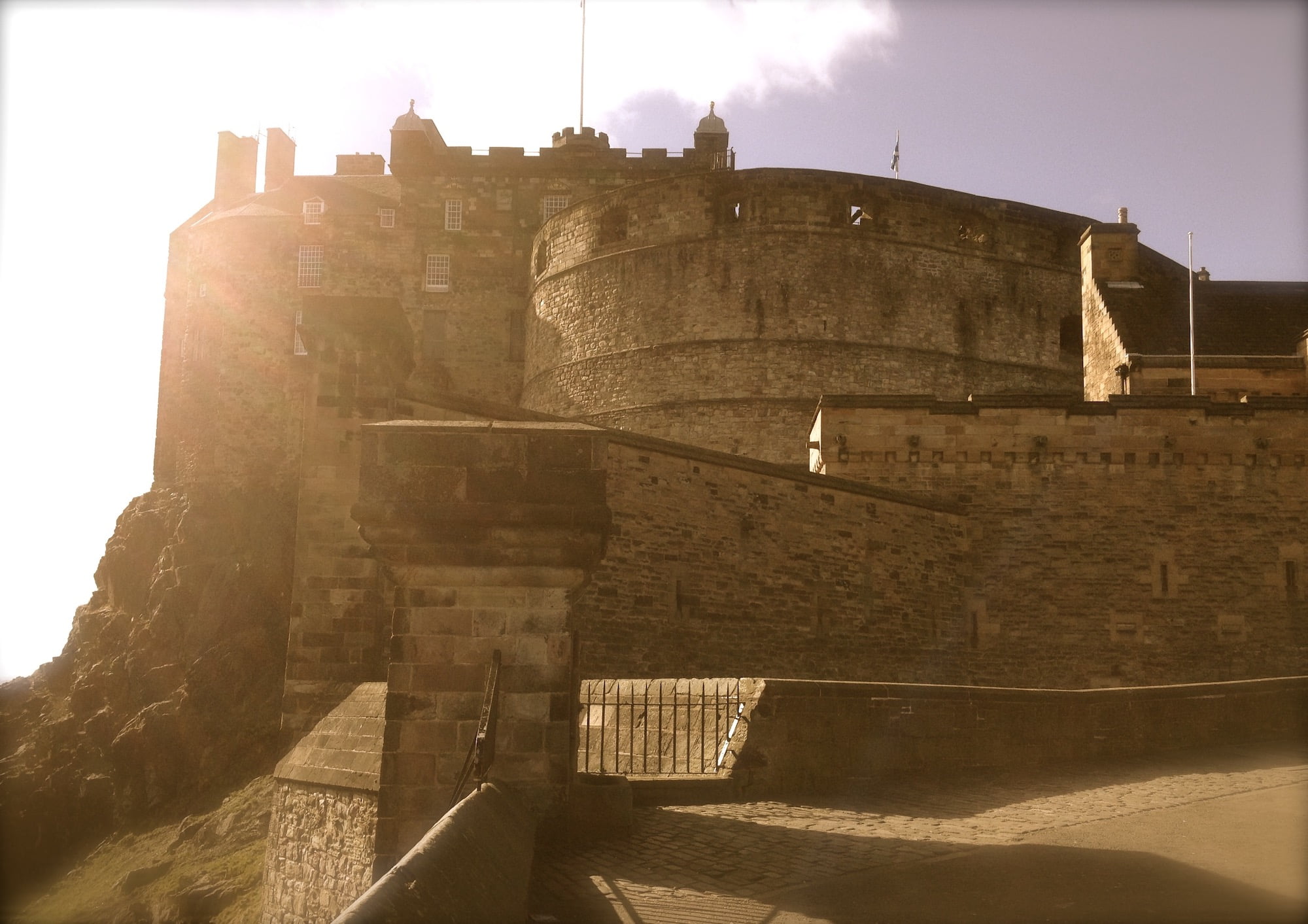
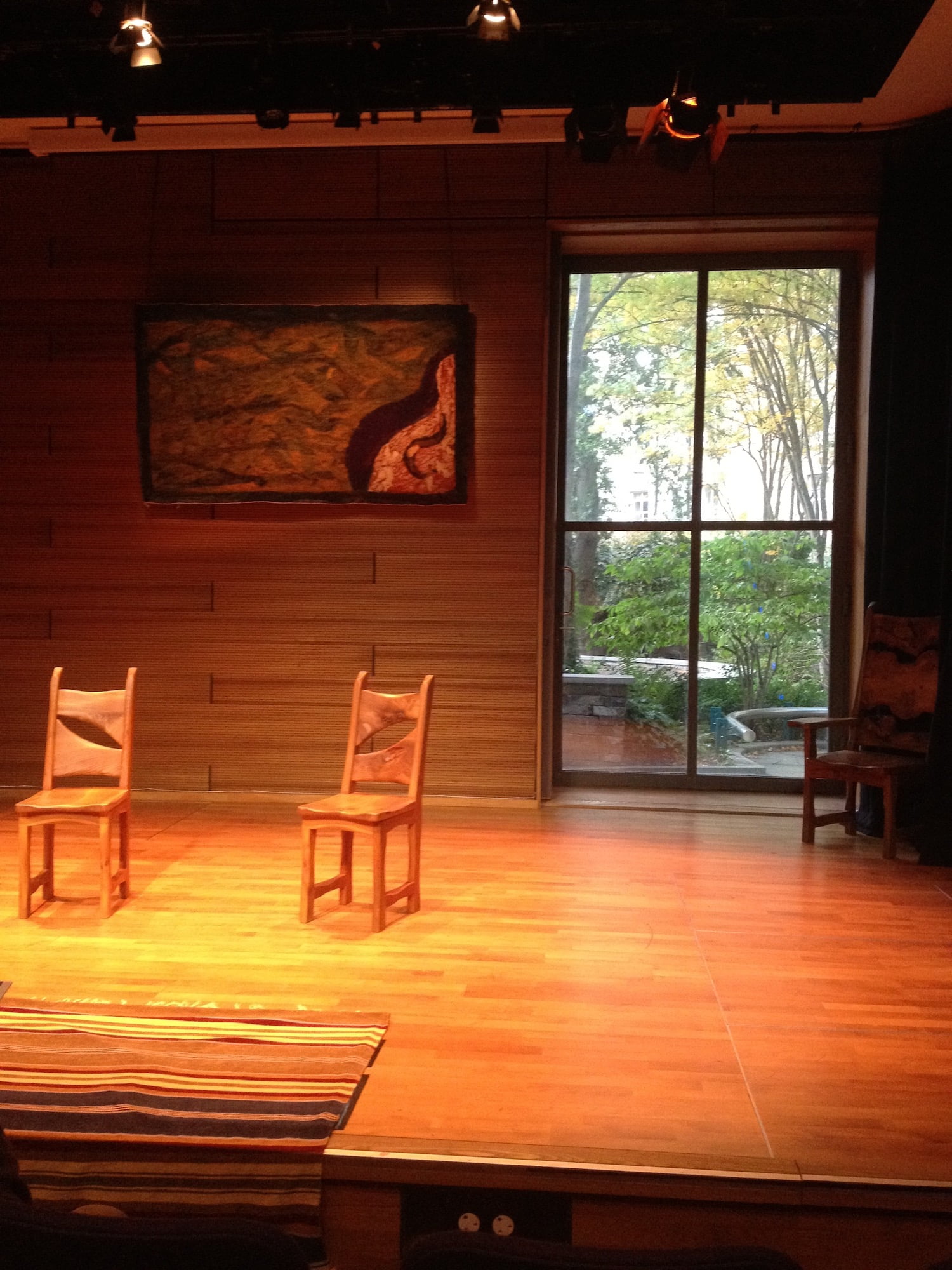
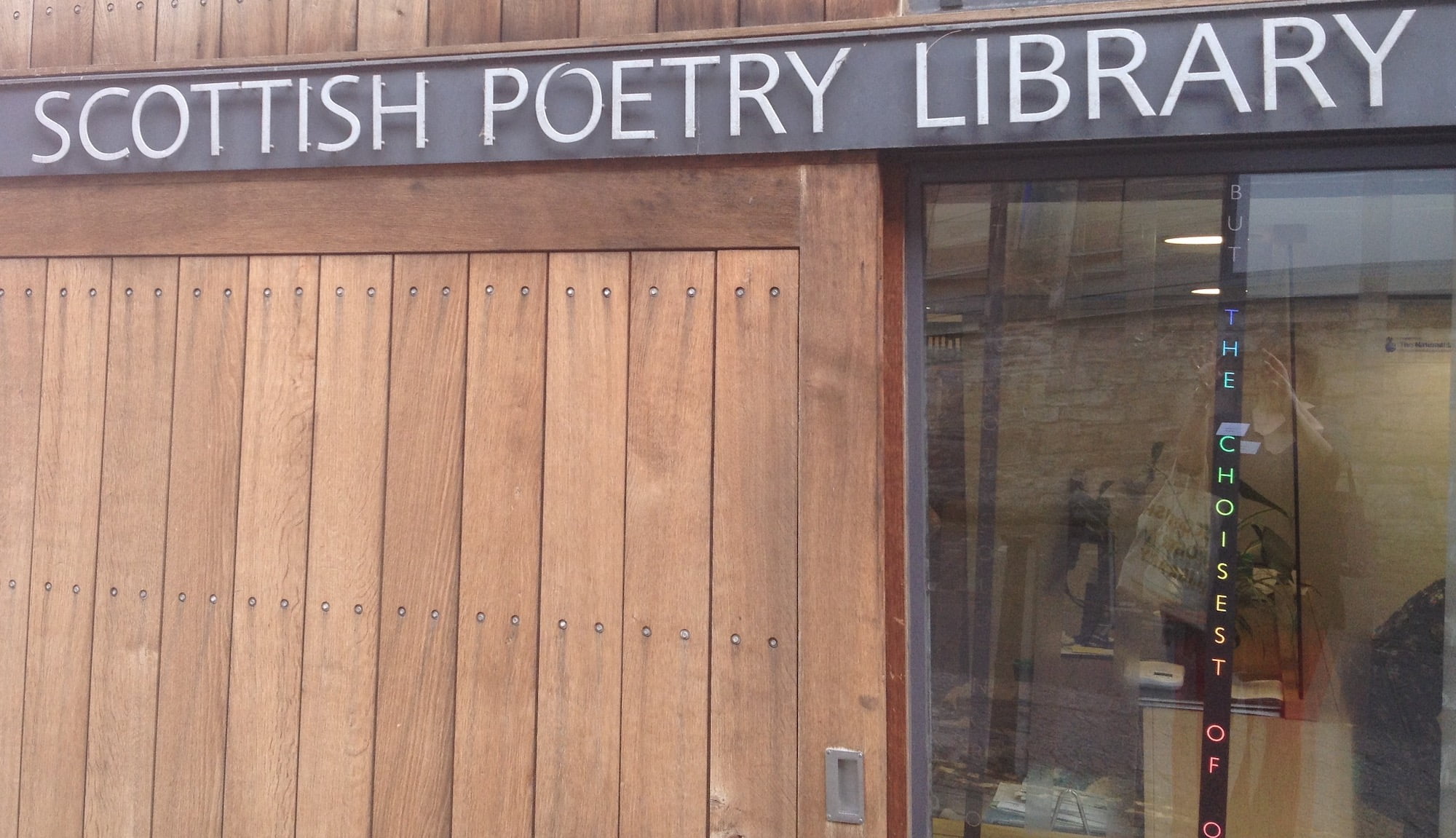
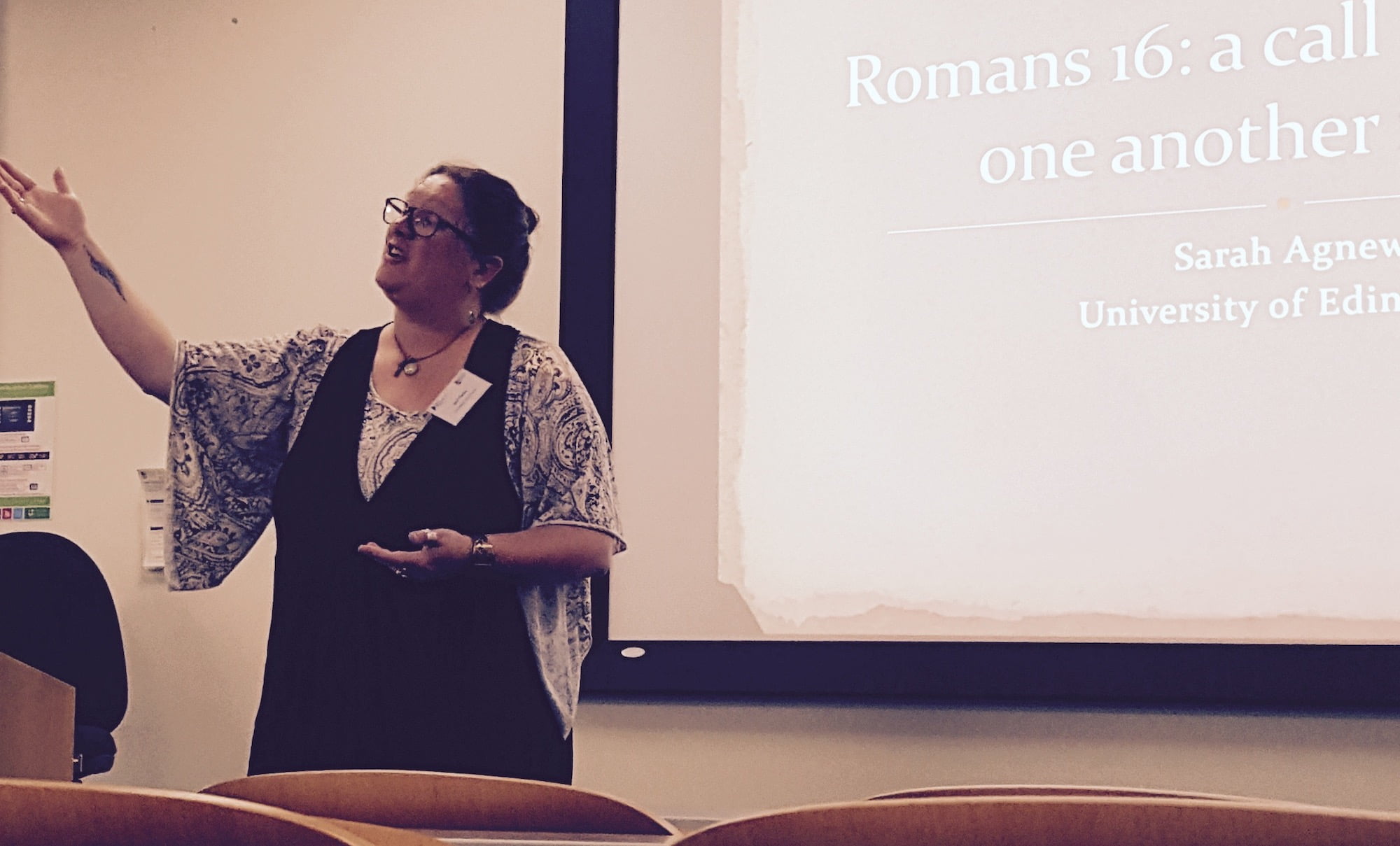
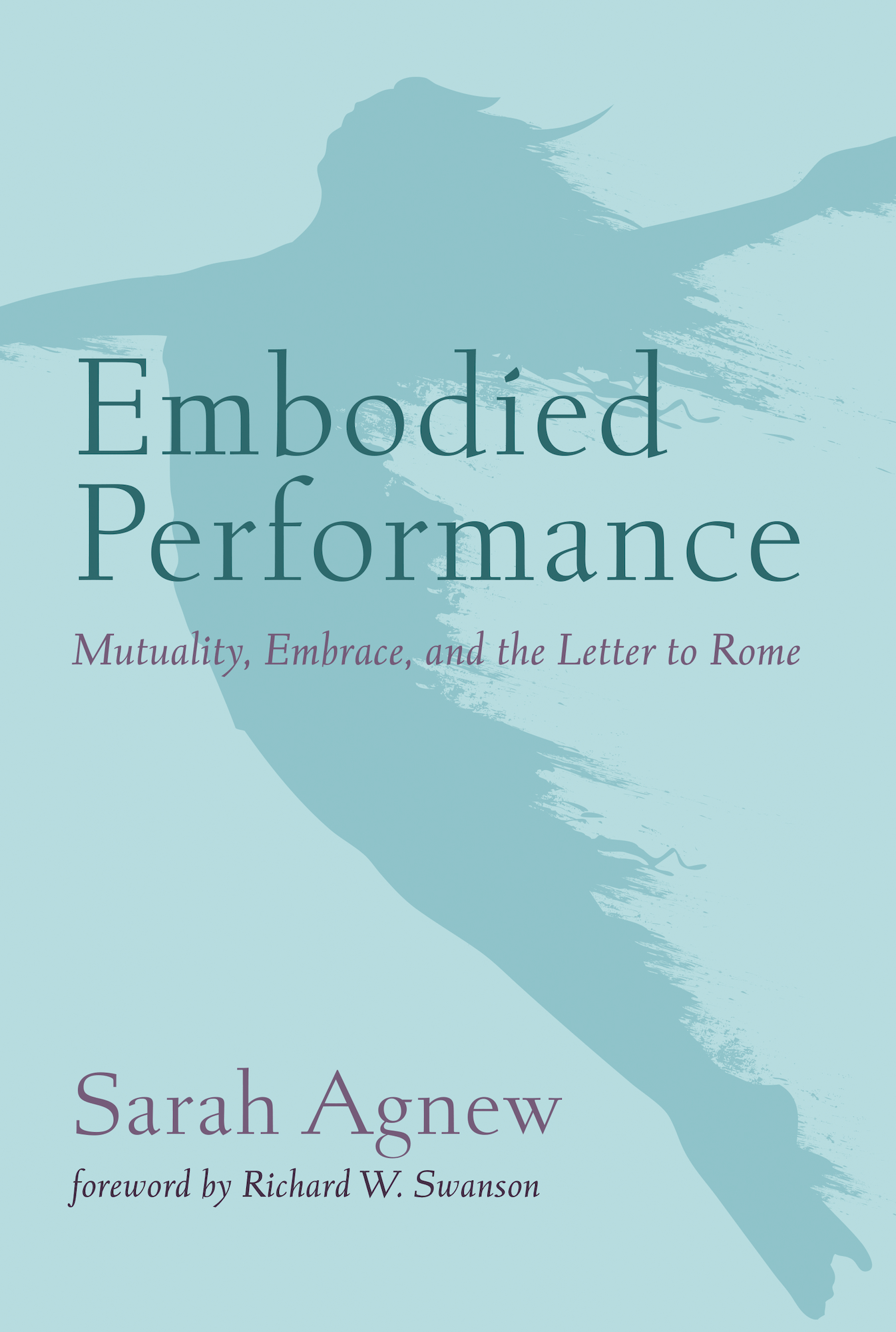

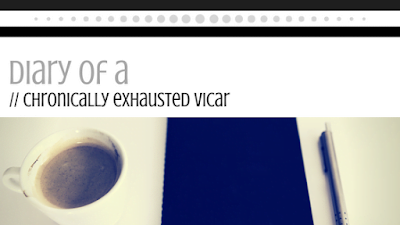
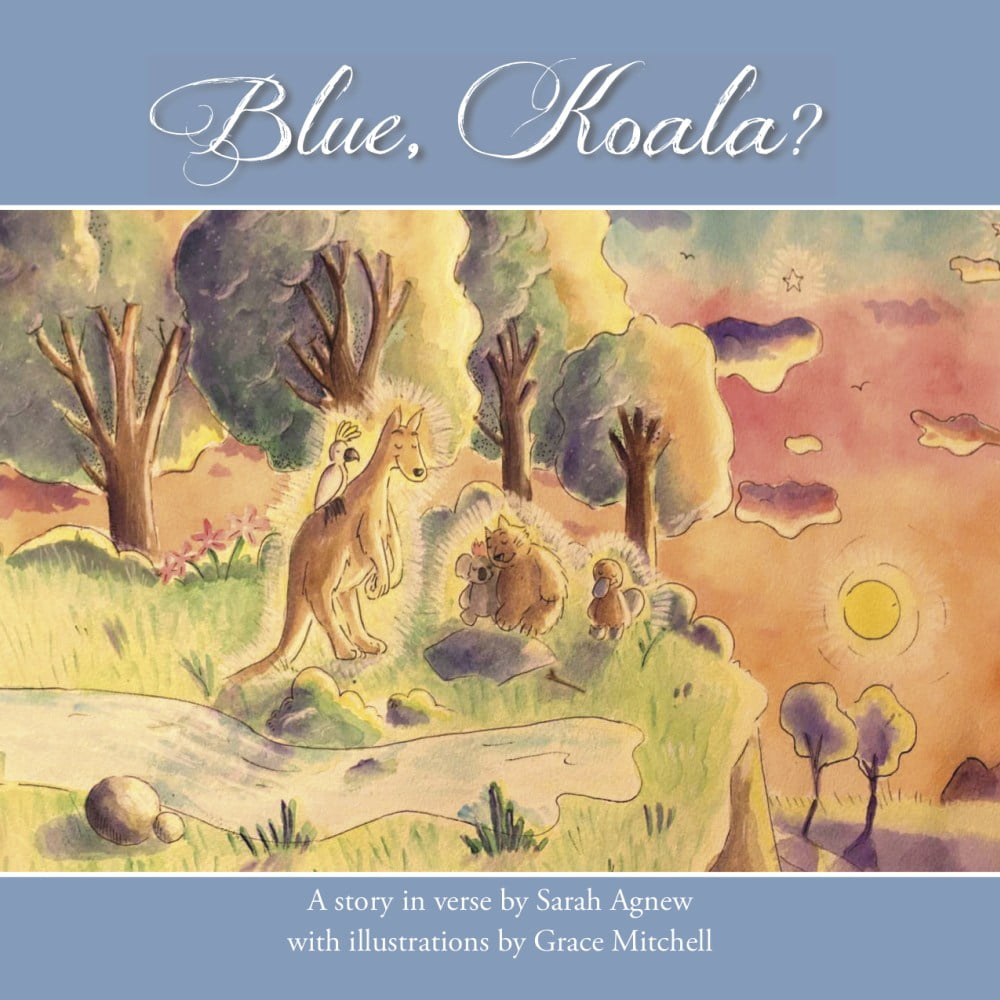
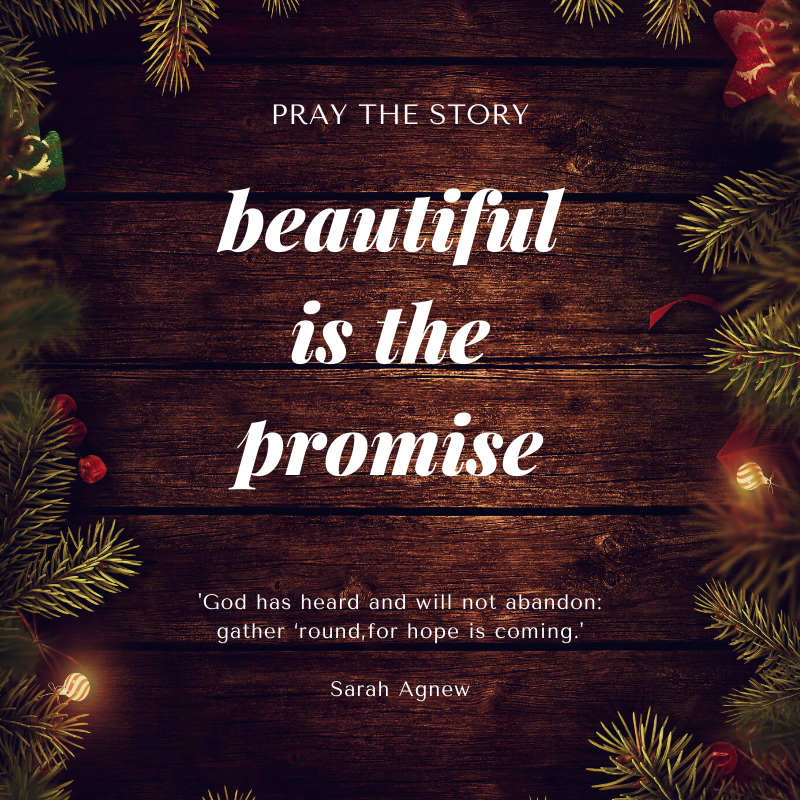
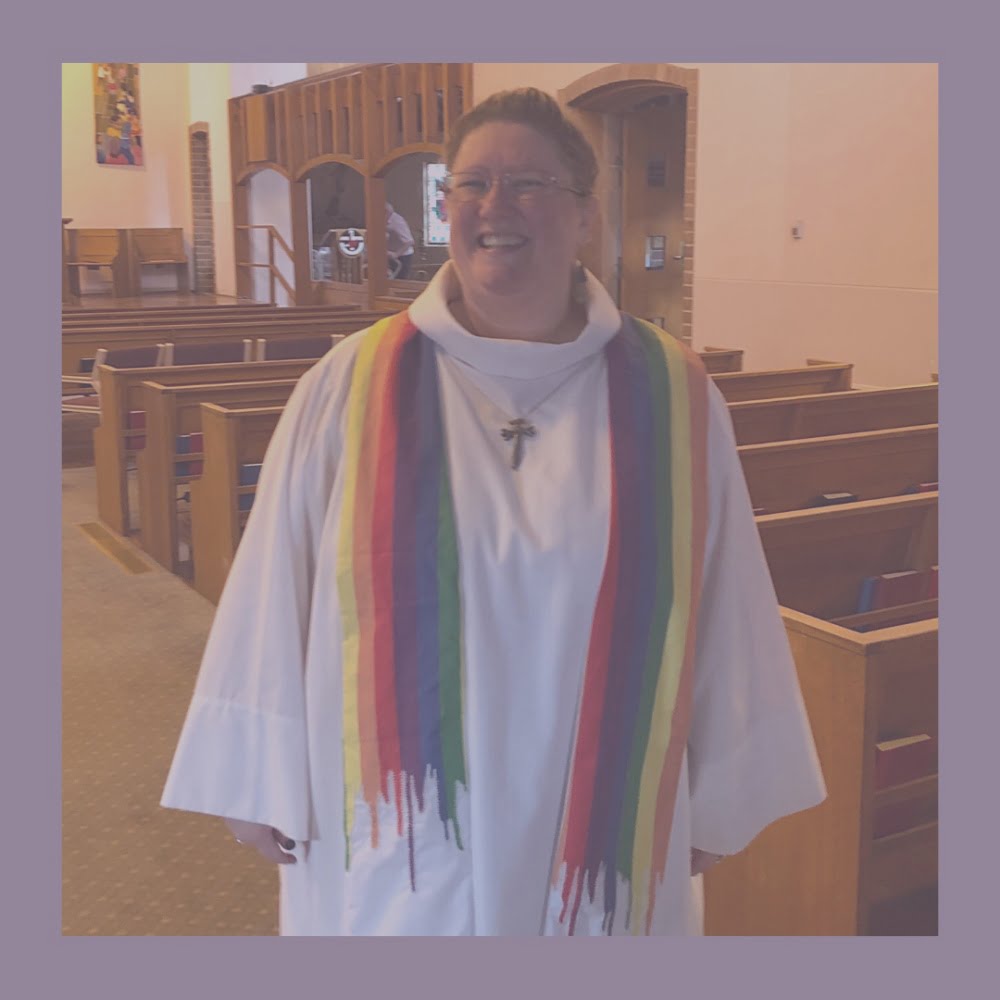
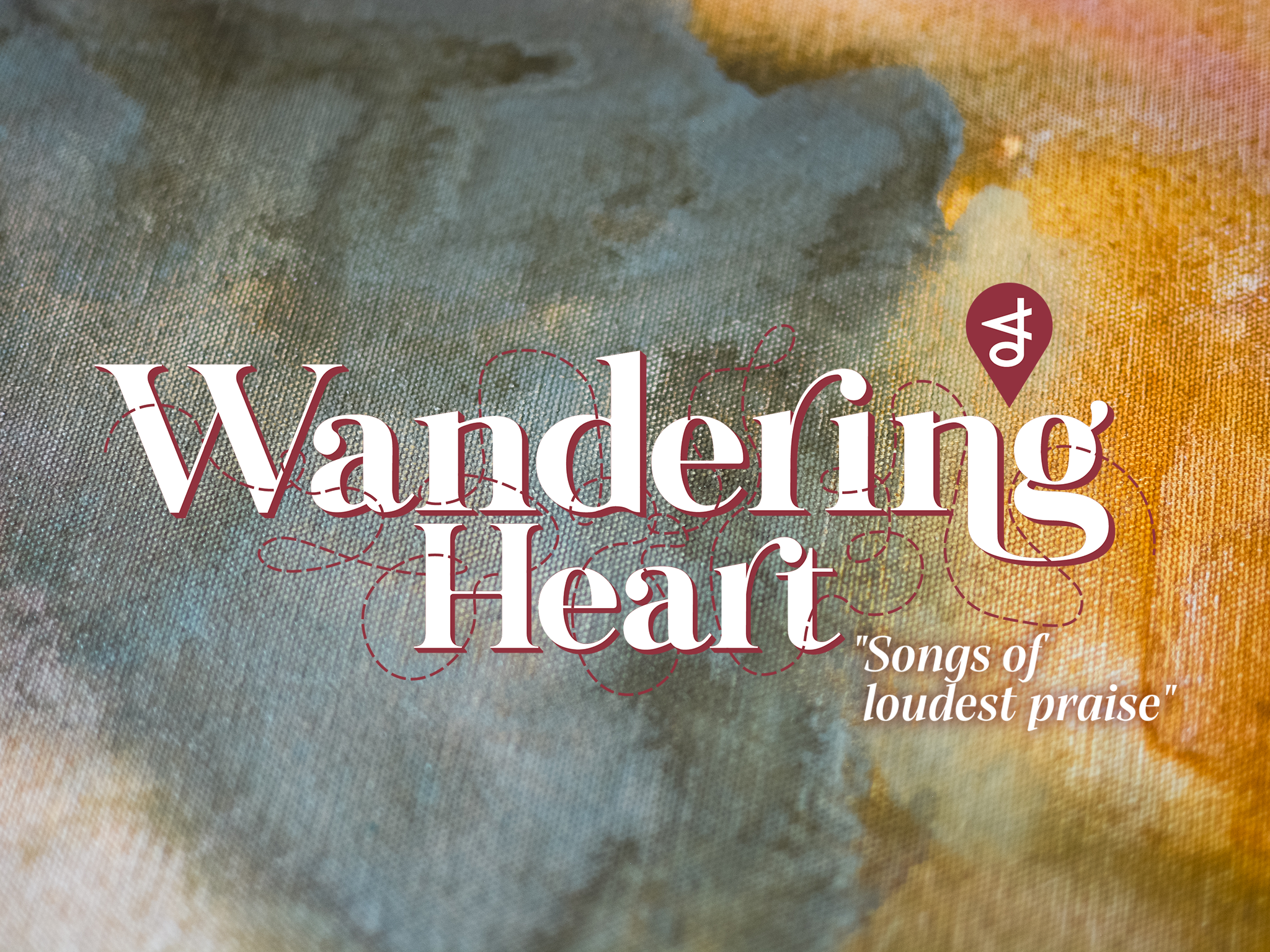
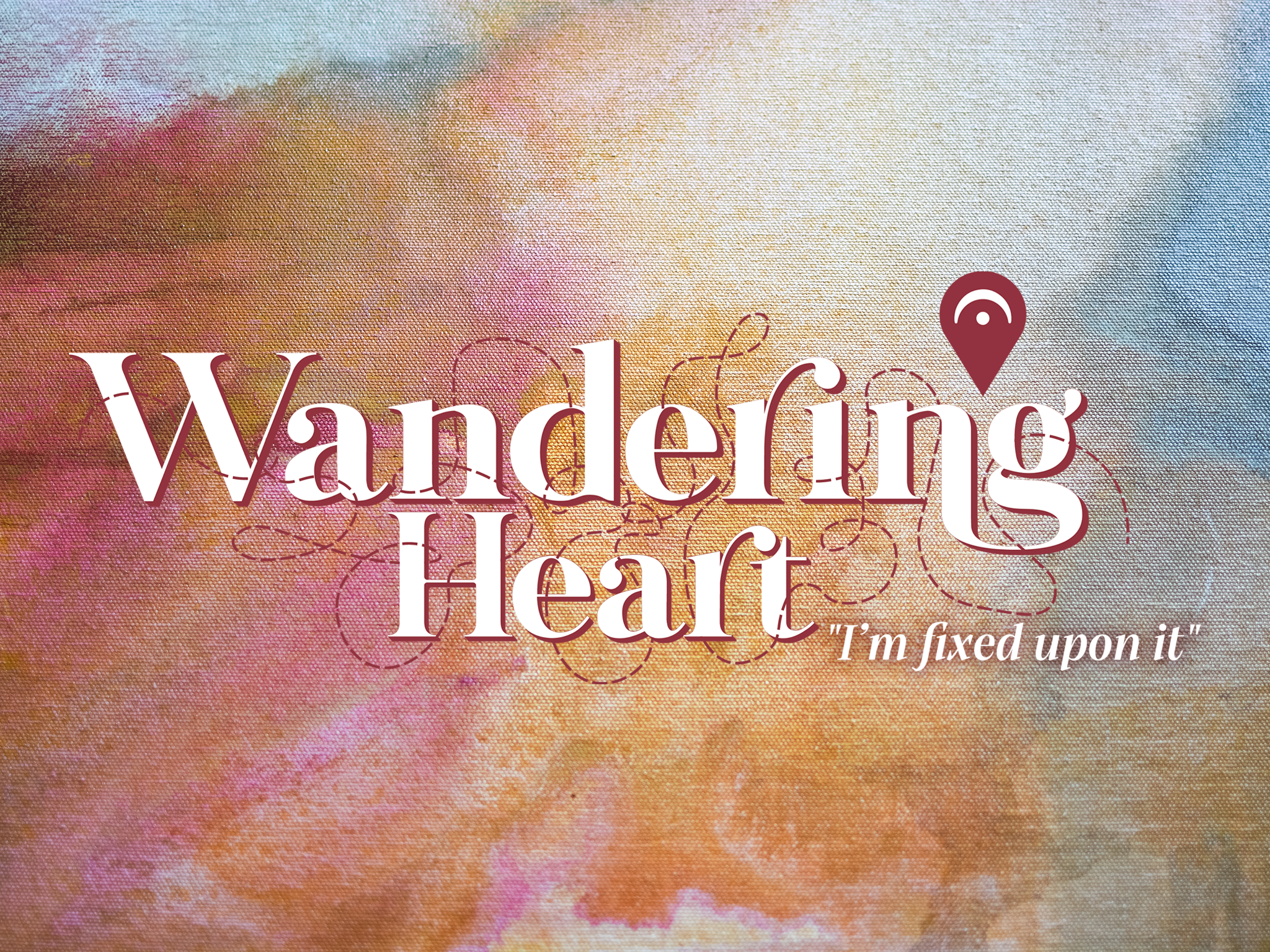
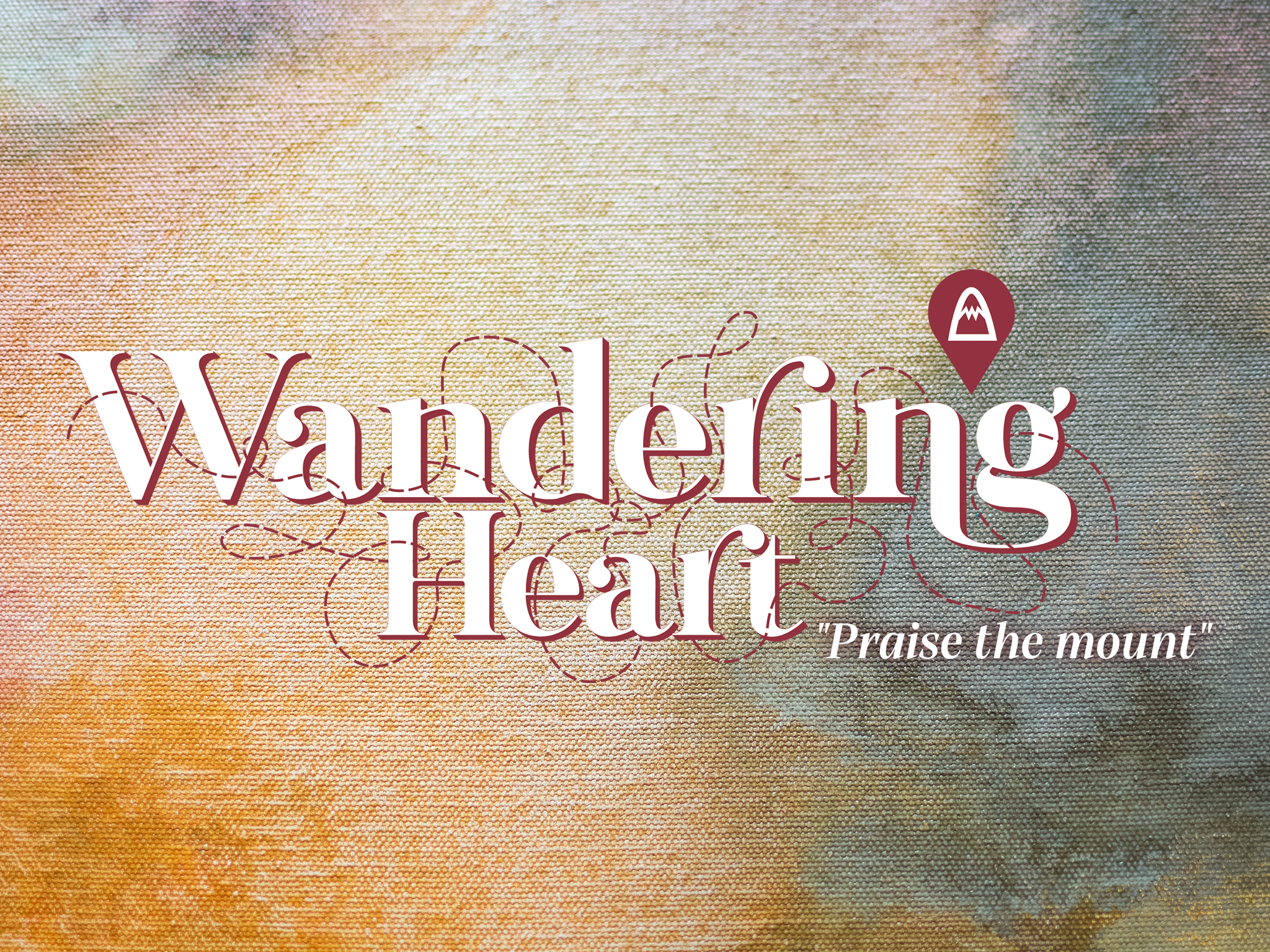
Leave A Comment